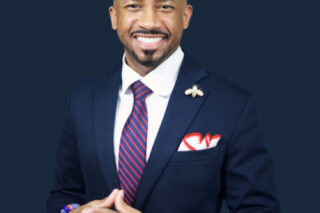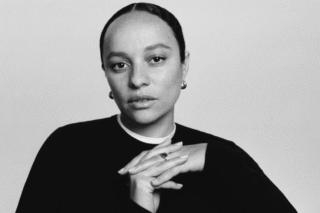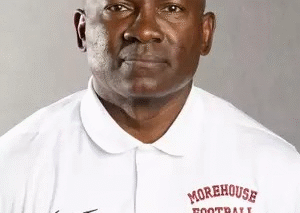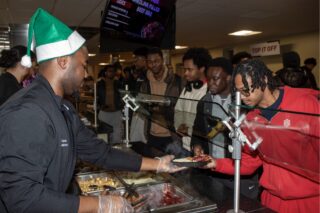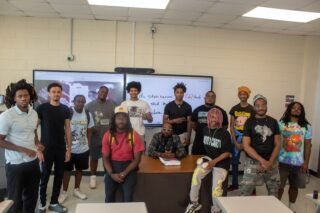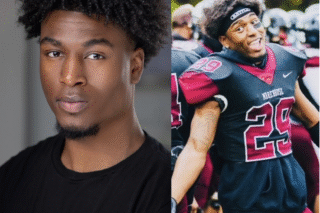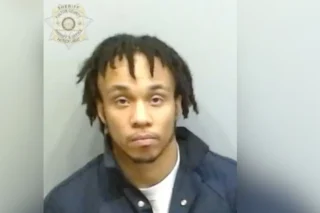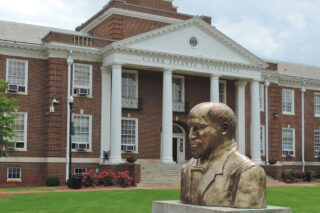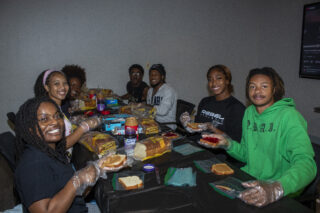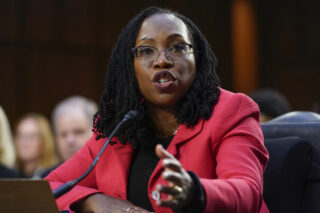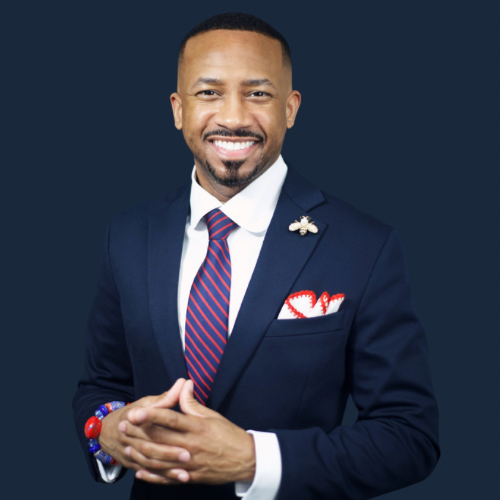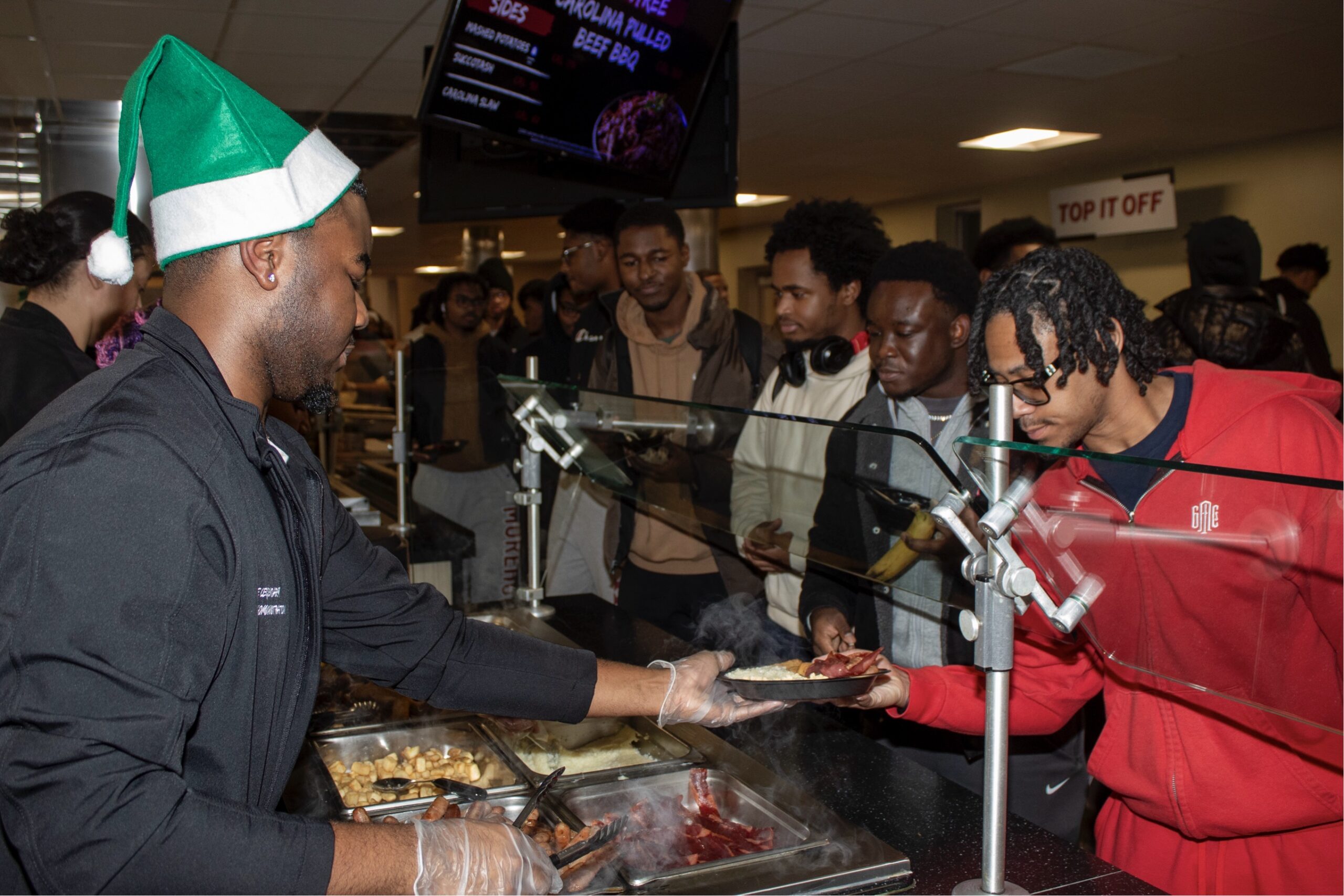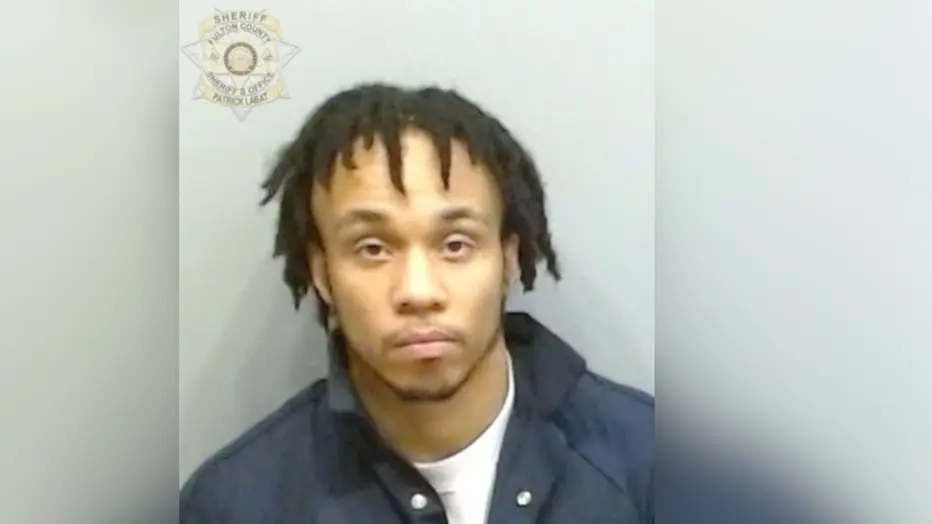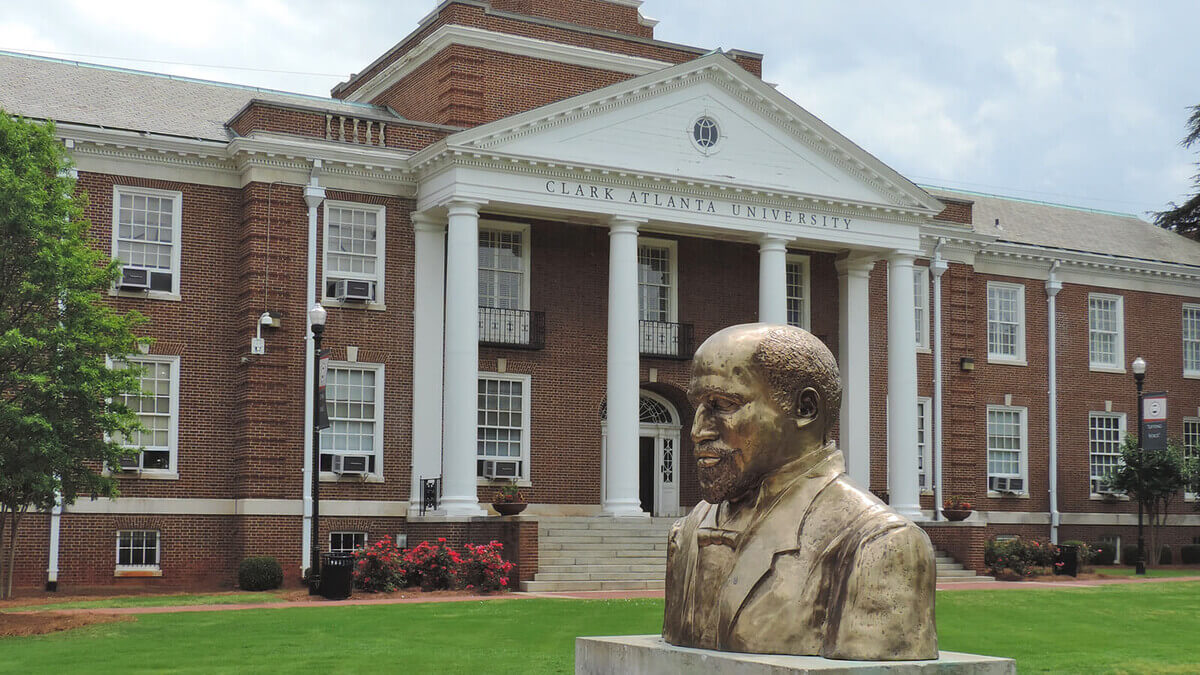By Kennedy Edgerton, Opinions Editor
When Barack Obama was elected president on Nov. 4, 2008, hundreds of members of the Morehouse community and television cameras from several networks were packed into Douglass Hall to hear the results. Ron Thomas, who was in his second year as director of the Morehouse journalism program, was among the crowd that erupted into cheers and tears when Obama was declared the United States’ only black president.
Shortly afterward, Thomas was inspired to assemble a panel of journalists to dissect the whys and hows of that historic event, with Douglass Hall the location again.
“I arrived at Morehouse with an interest in politics,” said Thomas, chair of the Journalism in Sports, Culture and Social Justice Department. “When he [Obama] became president, that was one of the most exciting moments I had ever experienced. That’s what prompted me to host a panel.”
The discussion was so enlightening that it began a 14-year tradition of post-election political discourse in the Atlanta University Consortium. Since 2008, the journalism program has hosted post-election reflections after every presidential election and several important midterm elections, like the one that occurred this week and still has not been finalized.
It’s 2022 version is named “Did Democracy Win?” and will be a Crown Forum After Dark held Friday, Nov. 11, at Bank of America Auditorium. A reception starts at 5 p.m.; panel discussion starts at 6.
The panelists include Emory University Professor Carol Anderson, Africana Studies Professor Sam Livingston of Morehouse College, and Atlanta Journal-Constitution politics reporter Greg Bluestein. The panel will be moderated by Gerren Gaynor ’11, a former Maroon Tiger managing editor who now is a White House reporter for TheGrio.
The event will end with a drawing for a free ticket to the newly released movie “Black Panther: Wakanda Forever.”
The results of this year’s midterms will undoubtedly have a crucial impact on the student body and contemporary politics. The title of Friday’s event is no accident, either. Thomas believed that democracy was at risk given the rise of political intolerance and animosity between the left and right, alongside the transgressions of Donald Trump during his presidential term.
He believes that voting will be vital in preventing Trump and his followers from returning to the White House and other positions of power.
“They’re [Republicans] looking to have an autocratic government,” Thomas said. “If they take control of determining who wins state and federal elections, democracy will essentially be dead.”
Livingston believes that black men play a very important role in the effort to maintain democracy.
“We’re at a point where we need black men in particular to step up and match the level of political engagement that black women have,” Livingston said.
“We have to make some hard value choices. We need to start producing race men – men who are committed to benefitting and strengthening the black race.”
Furthermore, elections affect problems such as the conviction of police officers who unlawfully kill minorities, and other policies that affect black and brown people in disproportionate ways. The right to an abortion may also disappear. Without intervention from voters, these issues will only continue in the future.
When asked about the impact of the panel on students, the panelists remain optimistic.
“I want the audience, particularly the students, to understand that they are major players to what happens in this country,” Gaynor said. “We really have a responsibility to protect the future of this country.”
Copy Edited by Miles Johnson

